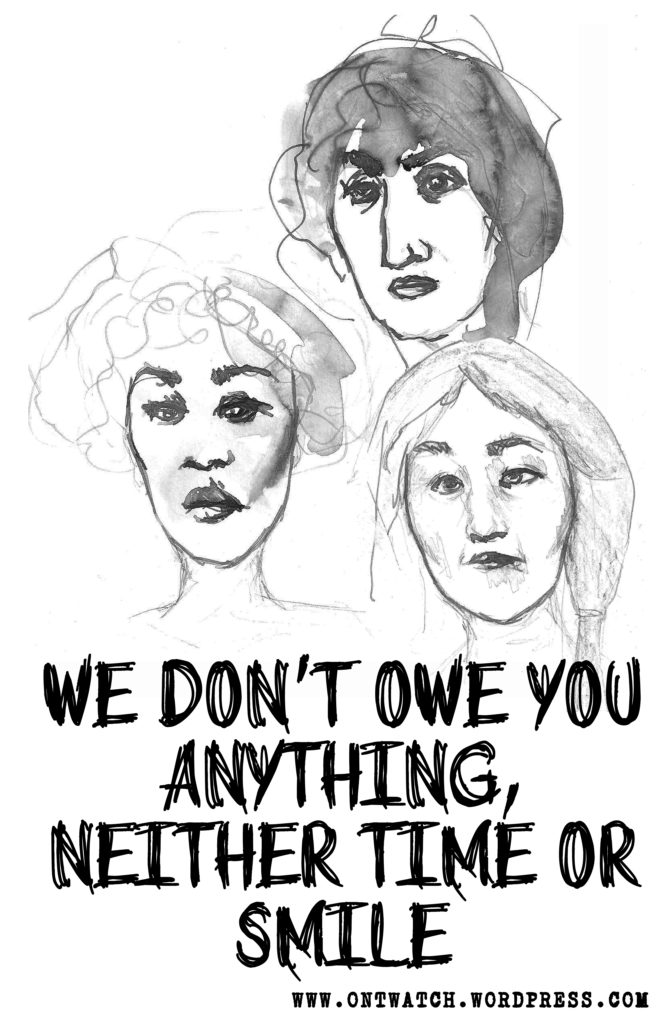Alice C.R., Barcelona, Spain SSH Blog Correspondent
Trigger Warning – Sexual assault
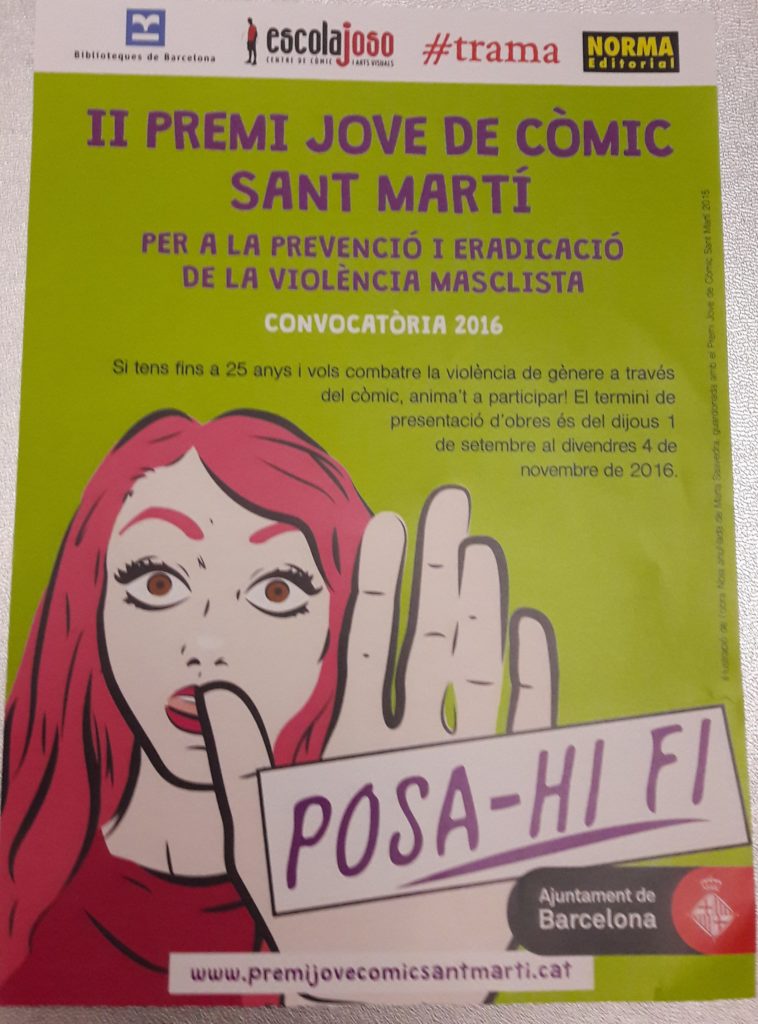 For many people, Barcelona is the sunny, party city by the sea. And it is true that the city offers a large range of activities throughout the year (and not only parties and night clubs, by the way), but some events are bigger than others.
For many people, Barcelona is the sunny, party city by the sea. And it is true that the city offers a large range of activities throughout the year (and not only parties and night clubs, by the way), but some events are bigger than others.
This last weekend, for instance, has been one of the most festive of the year in Barcelona. Every 24th of September the city celebrates La Mercé, the Patron Saint of Barcelona and the city holds a four days street festival in her honour. Concerts, exhibitions, street arts, dance, fireworks and the traditional Castells (human towers, catalan tradition delared Intangible Cultural Heritage in 2010 by UNESCO) attract thousands of both local people and tourists. This kind of big celebration is also a good opportunity to tackle street harassment and assaults by making people aware of these issues and their dangerousness and offer appropriate support to the victims.
This is crucial. And for good reason. Recent news remind us almost every single day how sexual assaults are shockingly common and how stereotypes and myths about them are still deeply ingrained.
We have all heard here about the San Fermin rape case and sexual assaults. Especially the one where five men gang raped a young woman. The police arrested one of them while he was sleeping in his car and the others were enjoying a street party. And this was not the first time it happened. Every year, the San Fermin counts at least with one case of rape.
Another case made the headlines recently in Barcelona — a city councilwoman reported a sexual assault attack by night in a zone where people use to go out.
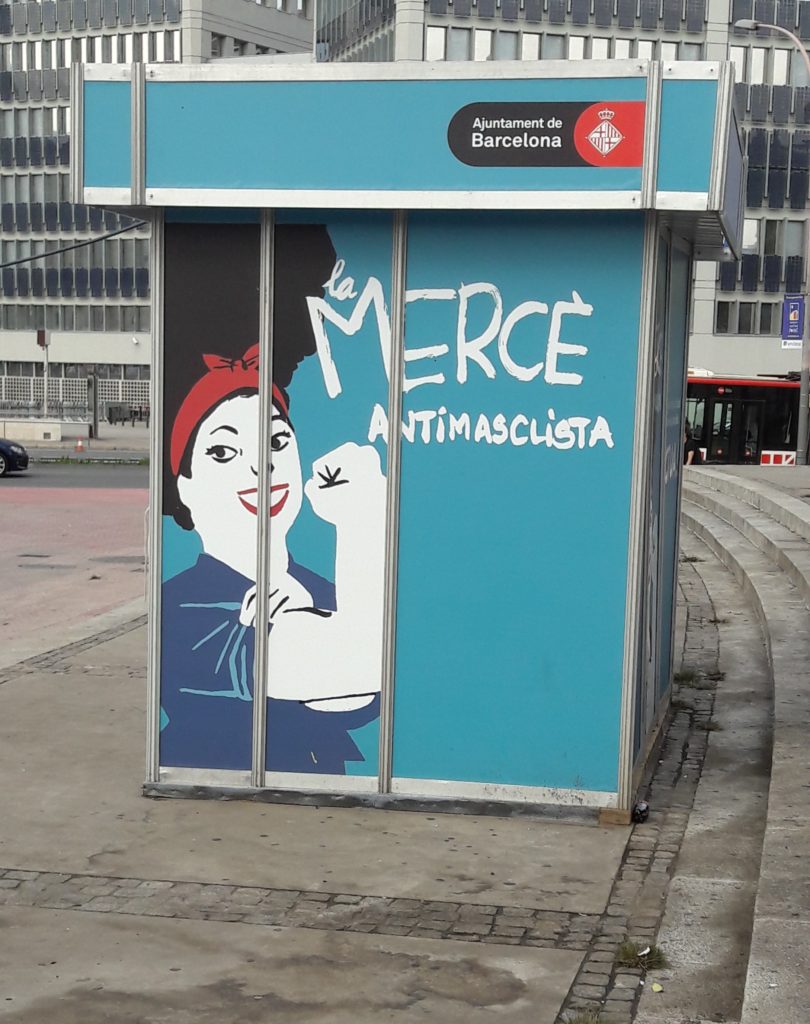 These are just two examples where one occurred during a big wild and controversial festival and the other happened at night to a public figure. And that is an issue by itself. It seems that only specific assaults are revealed and discussed, those that happen at night, during wild parties when we perfectly know that assaults can also (and mainly) occur by day, on the way to work and can be committed by an acquaintance. It is important to recognize that the stories in the media about sexual violence are only the top of iceberg.
These are just two examples where one occurred during a big wild and controversial festival and the other happened at night to a public figure. And that is an issue by itself. It seems that only specific assaults are revealed and discussed, those that happen at night, during wild parties when we perfectly know that assaults can also (and mainly) occur by day, on the way to work and can be committed by an acquaintance. It is important to recognize that the stories in the media about sexual violence are only the top of iceberg.
Unfortunately, both in the articles and in the comments left by readers, there was body shaming, slut shaming, incredulity, and doubt about the facts described by the victim. We learned, for instance, that the gang rape victim might have given a kiss before being raped. How is that relevant!?
That is why initiatives like Sanfermin sin agresiones sexuales , LaMercé anti masclista and Bcn Antimasclista are vital. In a world where victims are blamed for being assaulted, where they are revictimized, information and support must be provided.
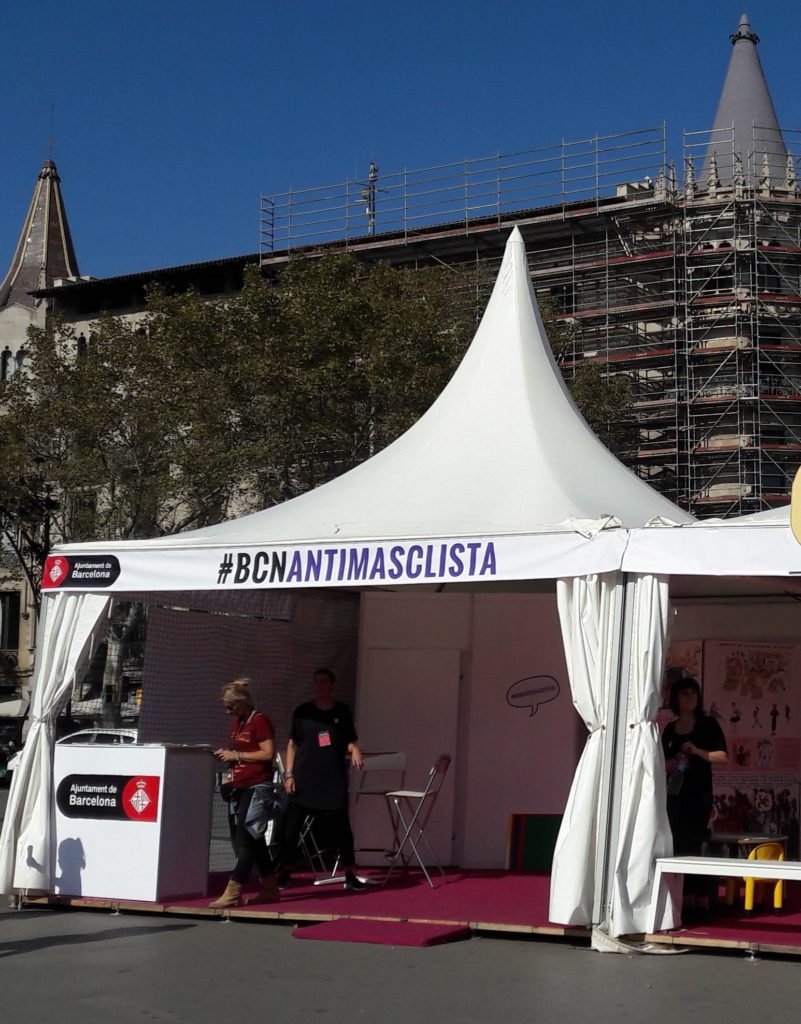 I was out celebrating for La Mercé and I must say it was quite comforting to see two stands where I could get information about all the different associations of the city and which one I should contact in case of sexual assault, domestic violence, physical and/or psychological abuses, where I could get a hotline number in case of emergency, where I could report any incident. When looking all the leaflets and ask for general information I could speak with someone who asked me if I needed some specific information or help and where I could make a test to see if I were in an abusive situation and which organization I should contact if so. I know these organizations and I got help from some of them. They are doing a wonderful job but not everyone knows them and this makes the issue visible and makes it easier to speak out.
I was out celebrating for La Mercé and I must say it was quite comforting to see two stands where I could get information about all the different associations of the city and which one I should contact in case of sexual assault, domestic violence, physical and/or psychological abuses, where I could get a hotline number in case of emergency, where I could report any incident. When looking all the leaflets and ask for general information I could speak with someone who asked me if I needed some specific information or help and where I could make a test to see if I were in an abusive situation and which organization I should contact if so. I know these organizations and I got help from some of them. They are doing a wonderful job but not everyone knows them and this makes the issue visible and makes it easier to speak out.
There is still a long way to go. This summer, the city of Tarragona launched a campaign about consent called Respetame (respect me). Of course a man thought it would be very appropriate to write an article about how women say “no” as a game and that all they want is to get the harrasser trying harder. He compared it to the business law of market where a man’s goal is to turn a “NO” into a “yes”. The city councilwoman who has been assaulted pointed out some failures in the process of reporting an attack.
It is still very common to hear victim-blaming and victim-shaming comments.
But by using event such annual festival to give basic information about how to recognize a situation of abuse, to provide addresses and contacts to seek help, to give the opportunity to speak out, we are on a good way to tackle sexual violence. Hopefully.
Hotline Assistance 24/24 in 124 languages : 900 900 120
http://dones.gencat.cat/ca/ambits/violencia_masclista/recursos_atencio/telefon_900/
Alice likes researching, analyzing and writing about Women’s Rights, gender bias, and intersectionalism with a special focus on sexual violence, rape, rape culture, the impact of street harassment and how the media deals with these issues. She is currently working on a new project focused on how some media participate in the revictimization of victims. Follow her and her projects on her Facebook page and via Twitter @Alyselily.

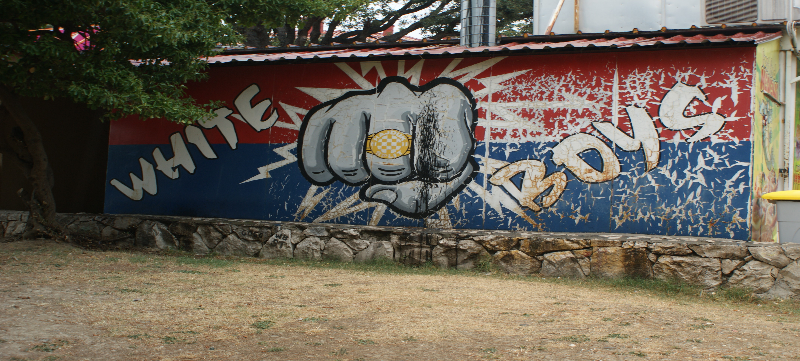
 I would warn that when a woman discusses mistreatment, asking her to qualify her experience is synonymous with the famous, “what were you wearing?”, and highly problematic. While many of the citizens here would vehemently defend the ‘intention’ of the graffiti wall, some go so far as to accuse me of misunderstanding. At a time when the people of the Balkans are struggling to find a democratic expression and recover from tyranny, it’s surprising that anyone here would admonish a victim of mistreatment, “not to believe your eyes.” Is it possible that the vacuous space required for hostility and oppression to occur, come from the philosophy of justifying, rationalizing and explaining inappropriate behavior? Is it possible that holding people accountable to their intentions and beliefs, while ignoring their behavior and conversation is a critical component in the psychodynamics of privilege?
I would warn that when a woman discusses mistreatment, asking her to qualify her experience is synonymous with the famous, “what were you wearing?”, and highly problematic. While many of the citizens here would vehemently defend the ‘intention’ of the graffiti wall, some go so far as to accuse me of misunderstanding. At a time when the people of the Balkans are struggling to find a democratic expression and recover from tyranny, it’s surprising that anyone here would admonish a victim of mistreatment, “not to believe your eyes.” Is it possible that the vacuous space required for hostility and oppression to occur, come from the philosophy of justifying, rationalizing and explaining inappropriate behavior? Is it possible that holding people accountable to their intentions and beliefs, while ignoring their behavior and conversation is a critical component in the psychodynamics of privilege?